Black Student Success Center
Inspiring and empowering Black students to pursue their educational goals while affirming their culturally unique identities.
Our Mission
We strive to foster a campus that enthusiastically welcomes, celebrates, and supports Black students as they authentically engage in the ARC experience.
Our efforts are designed to connect Black students to the programs, people, and resources that will nurture academic and personal growth.
Questions?
Contact blackstudentsuccess@arc.losrios.edu or (916) 484-8573.
The Black Student Success Center is located in the UNITE Center, at American River College.
Black Student Success Center Events
The Price of Silence: Evaluating Black Femicide (CRC Women's History Month)
from 2:30 to 4:00 p.m.
Blackademia
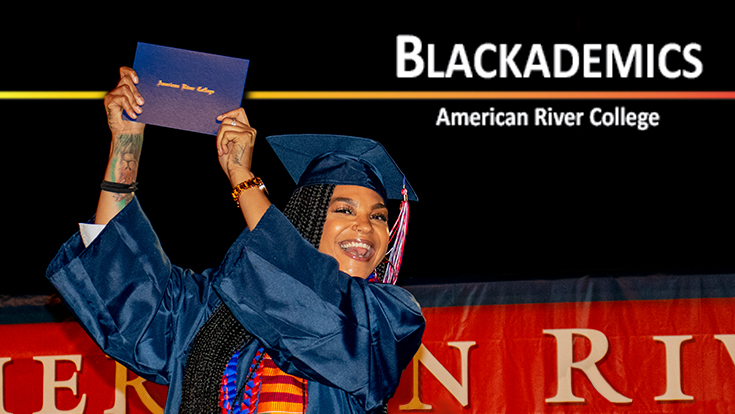
Blackademics
The free Blackademics program that offers referrals, services, speakers, and other ways to support your academic pursuits. Connect with tutors, talk to peer mentors, and share in events that can help you succeed at ARC.

Umoja Sakhu Learning Community
The Umoja Sakhu Learning Community is open to all students and is specifically designed to increase retention, success rate, graduation and transfer rates of African ancestry students.
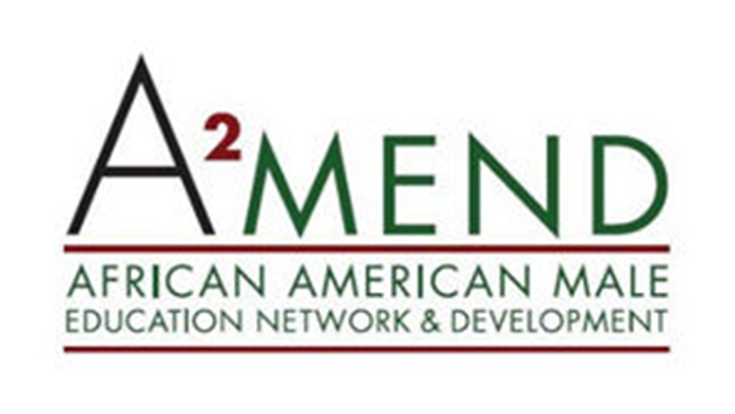
A2MEND
Coming soon! We are pursuing a student charter with African American Male Education Network and Development (A2MEND). Check back for updates.
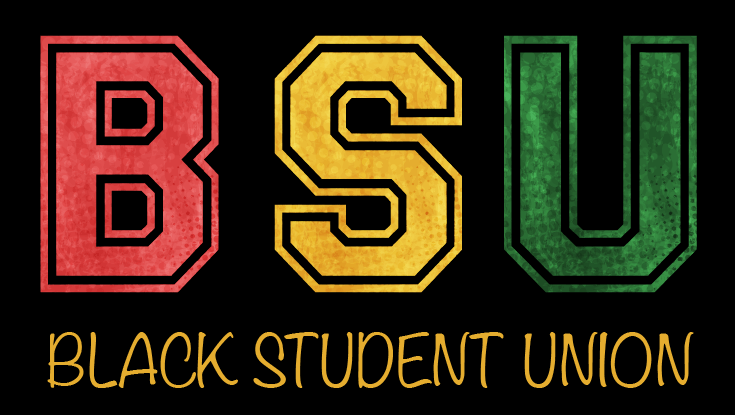
Black Student Union (BSU)
The ARC-Black Student Union is a student led organization dedicated to building community, promoting cultural awareness, and fostering leadership and academic success.
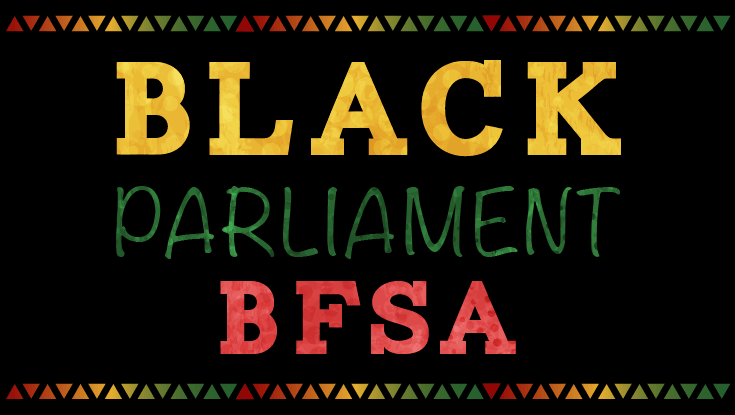
Black Parliament
Black Parliament is a council of Black employees and community members that address and support the specific needs of Black students.

Black Book Staff Directory
View a directory of Black faculty, staff, and administrators to whom you can reach out for support.
Additional Resources
Our Partners
Our community partners offer a regional network of support and cultural engagement for Black students.
Campus Resources
Resources for Black student success.
B • L • A • C • K
The Black Student Success Center is committed to the success and growth of all Black, African American, and communities of African descent at American River College.
African American Mental Health Providers
- Chase Moore and Dr. Tiffany Mims
- Charlotte Scott-Day, LMFT, Interim President
- 1531 Corporate Way, Sacramento, CA 95831
CalVoices
- CalVoices
- info@calvoices.org
- (916) 366-4600
Safe Black Space
Safe Black Spaces Community Healing Circles started in April 2018 in response to the increased racial tensions and trauma after the killing of Stephon Clark, an unarmed 22 year old Black man, by the Sacramento Police. Meant to provide a chance for Black people to deal with the rage, shock, fear and sadness that so many of us were (and are) feeling. Community Health Circles take place every second Saturday of the month from 3:00 to 4:30 pm.
- SafeBlackSpace@gmail.com
- (530) 683-5101
Tameka Jackson Ph.D., Licensed Psychologist
Dr. Tameka Jackson is also contracted with FLC.
- drtamekajackson@gmail.com
- 1531 Corporate Way, Sacramento, CA 95831
NaiBrittany Fenton, LMFT
- Naibrittany.R.Fenton@kp.org
- Kaiser Permanente (you must have Kaiser Medi-Cal or Kaiser Insurance)
- (916) 973-5300 (main line)
- (916) 973-7209 (direct line)
- 2008 Moore Avenue, Sacramento CA 95825
Visualize Your Life Counseling
- Brandi Garner, LMFT
- (916) 585-3034
- 9717 Elk Grove Florin Road, Suite A, Elk Grove, CA 95758
Melanin Meets Mindfulness
Melanin Meets Mindfulness is a wellness-based program dedicated to teaching the principles of mindfulness, while centering the experiences of African-American women in the process. The mission of Melanin Meets Mindfulness is to create safe emotional spaces for African-American women to tap into their inner wisdom, guided by the principles of mindfulness: nonjudgment, compassion, and embracing the moment as it is. We are also teaching the importance of slowing down, getting still, listening for and paying attention to self, in order to learn what our spirits need to grow and thrive.
- (916) 607-8706
- 1531 Corporate Way, Sacramento, CA 95831
Aunt Bertha
The ARC Hub (powered by Aunt Bertha) is a social care network that connects people with programs and social care providers that serve them.
Ayana
Ayana Therapy provides mental healthcare for marginalized and intersectional communities.
Black Student Union
Denzel Phoenix, President
My name is Denzel Phoenix and I am the current president of the Black Student Union and Umoja Sakhu Club. I am a student at ARC who is double majoring in both Psychology as well as Sociology. The reason I took on the task of being the president of the BSU and Umoja Sakhu club is because I believe that black students are more than our skin and the stereotypes society holds for us. I know that we come from a long line of greatness. Deeply melanated heroes who transcended and inspired every category we aim to be professionals in. I want to live my life making my ancestors and elders proud. So they can see that their sacrifices and achievements did not go unnoticed nor wasted. As Black and African people of the diaspora and the motherland I have always felt that we have an obligation to be the greatest versions of ourselves. To lead by example and stand strong in the face of opposition. Our ancestors deserve the pride to know that their greatness will live on through us and our furtherment of their achievements through our own achievements. At the time of writing this I only have a short time left at ARC and I know that through writing this some of you who read this will be inspired by these words to bask in your greatness to lead and live by example not only for yourself but also the future generations of Black Scholars. We are Black Excellence.
Joaquin Holland, Vice President
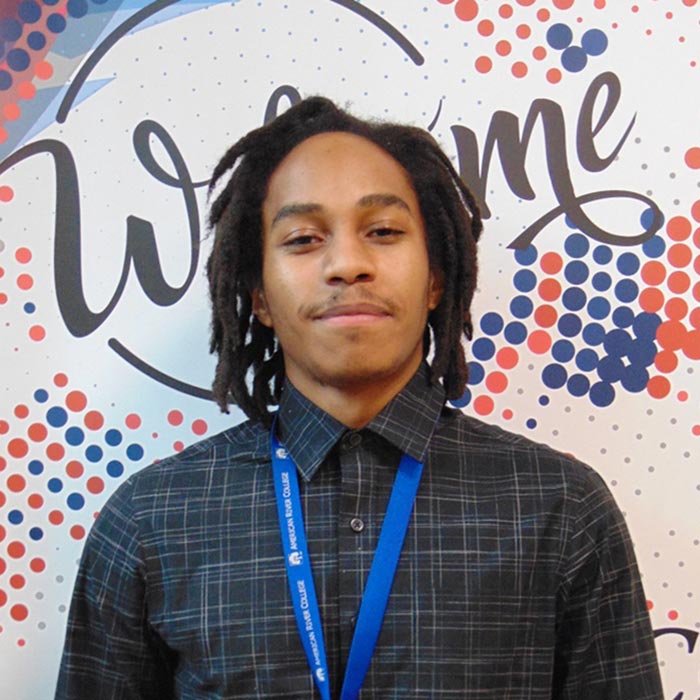
My major at ARC is Psychology. My educational goal is to obtain an A.A. in Psychology here at ARC, transfer to obtain a B.A., then continue to receive a Masters degree, and become licensed as a therapist/counselor. My career goal is to become a counselor or a therapist. I get a kick out of helping people, so I'm extremely fortunate to have the opportunity to work here. I like to be the person who students can rely on to receive accurate information about the resources we have here at ARC. I understand the frustrations some people experience of not quite understanding how to navigate campus or the website, so being a student employee gives me the ability to help from an active student point of view.
Anaundi Borum, Secretary
My major is sociology at the moment. My hobbies are writing poems, reading, skating, etc. I have a lot of stuff I like to do, and I get bored so I'm always looking for some new hobby to learn or skill to develop. I plan to transfer to an HBCU, though I haven't decided which one yet. I have no idea how long before I graduate I'm barely entering into second year. So I still have a long way to go, but I'm glad I'll have Umoja and friends for the time I'm here.
Other Officers
- Treasurer: Vacant
- Co-Advisor: Jeri Marshall
- Faculty Advisor: Tera Reynolds
Campus
- Umoja Courses
- Tutoring
- Counseling
- Transfer Center
District
- Celebration of Excellence
Community
- Bridge to Sac State MLK Center
- Bridge to UC Davis Center for African Diaspora Student Success
- Historical Black Colleges & Universities (HBCU)
We offer culturally relevant and responsive programming for our students of African descent – from Cameroon to the US, from Zimbabwe to London, from Brooklyn to the Dominican Republic – and we provide programs celebrating and educating about the expansiveness of our Black community.
What Educational Practitioners Can Do to Support Black and African American Students in Their Success
Derived from American River College Umoja Sakhu Learning Community Tribal Principles and Practices (August 2020).
Relationship Building
- Share your story
- Show genuine care and concern for Black and African American students
- Be intrusive, don't be afraid to reach out; talk to students about what they need to be successful
- Normalize help-seeking behavior
- Learn their name and how to enunciate it
Affirming and Validating
- Let them know that they belong in the class and in the educational environment
- Let them know they are smart and that they can succeed in your class
- Have high expectations
- Connect course content to student experiences and do not dismiss their lived experience
- Find ways to bring in the voices and experiences of all students
- Praise publicly, give critical feedback privately
It Takes a Village
- Know when and to whom you can refer students
- Use a trauma informed approach – consider that traumatic events in the past or present are causing certain behaviors
Touching the Sakhu (a Kiswahili term meaning to illuminate the soul or spirit)
- Look for unique gifts, talents and abilities and acknowledge them
- Invite them back if they go missing; express how their absence deprives the class of their brilliance
- Cite works by Black scholars/authors in your lectures or conversations with students
List of Recommended Reading
- Stamped from the Beginning: The Definitive History of Racist Ideas in America by Ibram X. Kendi
- How to be an Antiracist by Ibram X. Kendi
- The New Jim Crow: Mass Incarceration in the Age of Colorblindness by Michelle Alexander
- Just Mercy by Bryan Stevenson
- Why Are All the Black Kids Sitting Together in the Cafeteria?: And Other Conversations About Race by Beverly Daniel Tatum
- Post Traumatic Slave Syndrome: America’s Legacy of Enduring Injury and Healing by Dr. Joy DeGruy
- White Fragility: Why It’s so Hard for White People to Talk About Racism by Robin DiAngelo
- White Rage: The Unspoken Truth of Our Racial Divide by Carol Anderson
- Caste: The Origins of Our Discontents by Isabelle Wilkerson
Sankofa Ancestral Acknowledgment
Sankofa is a word from the Akan people of West Africa. Its literal translation means, "it is not taboo to go back and fetch what you forgot."
We acknowledge and thank all people of African ancestry who were stolen from their homelands and brought to this country and whose free labor played a major role in the formation and economic wealth of this country. We also honor the contributions of African American ancestral scientists, inventors and entrepreneurs whose contributions were stolen or never acknowledged due to white supremacy.
We honor and will not forget the thousands upon thousands of lives lost at the hands of enslavers, vigilantes, law enforcers and other forces of hatred in this country, generation after generation for the singular crime of being black, indigenous, or other people of color. We affirm and uplift those of African ancestry living in this country today as living testaments to the strength, love, faith, and fortitude of a resilient people.

